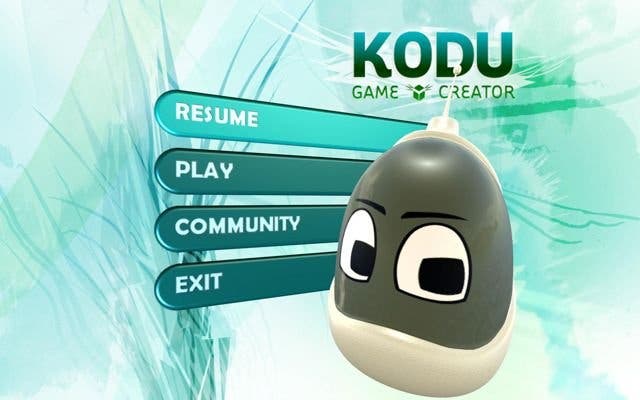Care in the Community
Microsoft's Boyd Multerer and Matt MacLaurin talk XNA and Kodu.
The Game Developers Conference seems to be Microsoft's favourite venue for showing off its game-making tools. After all, it's an event designed for and attended by people who make games for a living. But MS isn't just reaching out to developers - they're hoping to turn us all into bedroom coders with services like the XNA platform and the Community Games channel.
Now they're even targeting our young with Kodu, a game-creation tool designed for kids aged nine to 12. So where will it all end? With a load of tip-top, low budget, cheap at the price games for us all to play, hopefully. Or perhaps just a load of games based around Hannah Montana. To find out more Eurogamer caught up with Matt MacLaurin, the creative force behind Kodu, and XNA Game Studio boss Boyd Multerer.
We find that having to keep things simple enough for kids to understand is a useful discipline. When people sit down with XNA Game Studio for the first time they tend to run into one of two walls. If they've never made a game before, they find there's a lot of text to read and concepts to learn and the learning curve is pretty high.

If they know how to write code, it's pretty easy to get things moving around on the screen. But then they hit the art barrier, where they don't know how to make a character. That's pretty hard.
[Kodu] eliminates the first barrier, because even if you don't know how to write code you can follow logic. It's not directly teaching you how to write script, but you get how it works. Plus you can do that without having to come up with a bunch of art assets.
Right now we have a kind of neutral, playful set with these characters - they're all kind of toy-like. If all goes well, we'd like to have more hardcore packs where you can have tanks, rocket launchers and stuff like that, as well as more kiddie packs. The natural way for us to expand is to make more content available for different types of users.
And now we have. We've built a peer-to-peer sharing system so you can join up with your friends online and swap games you've made back and forth. We're trying to tread cautiously here, because we know user-generated content is absolutely the way of the future, but it's something we want to do in a way that's really sensitive to the concerns of parents. There are a lot of safeguards within the system to keep offensive content out, but by staying with peer-to-peer and friends lists, that gives us a moderate level of control while still letting a lot of sharing happen.
No, this is more like an email model. You can compose things, you can give them to your friends and we're not acting as an intermediary at all.

In the future, we may make it so you can do things like build a level in Kodu, then build an actual game for peer review - that's stuff we're talking about for possible future versions. But at some point you have to ship.
This is something we see as a long-term effort, and there are just a lot of unknowns in this space. In some ways the Xbox is a closed environment, like Disneyland - you know every experience you're going to have comes up to a certain bar of really cool stuff.
With Community Games there's the peer-review model, with Kodu we're doing peer-to-peer, and it's giving us tons of data on how people will use these differences and react to them. It's really a long-term investment for us.
The press tends to make out it's some kind of brutal competition. I feel we're two teams taking some of the same risks and trying to achieve some of the same things. That means really just empowering end-users, and trying to share the stuff we love about our profession with our customers. In that sense, great - I'm proud to be in their company.

On the other hand, they're trying to solve a very different problem. I think gaming is the only truly modern art-form today. Movies are pretty old, radio's been around a long time, so has theatre... Gaming has not been around long, and what separates gaming from those other media is programming. It's truly an artistic media; programming is a way to create art, and we really wanted to make a strong statement about that.
A top goal of ours for Games Studio and Kodu is education, getting people into being able to make games. We're worried that computer-science enrolment is way down; it's seen as a nerdy thing. Everything we can do to make it fun - that's setting the whole industry up for a good future.

